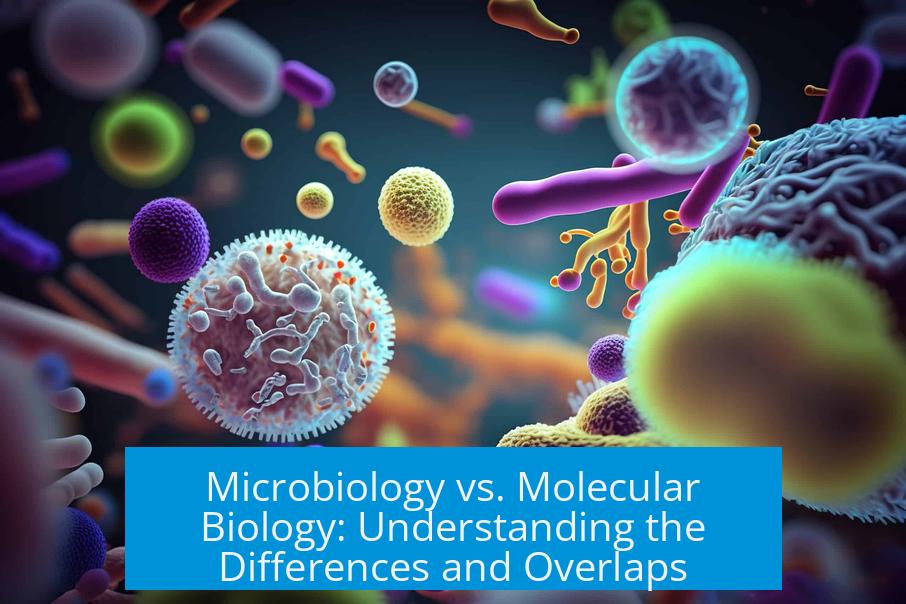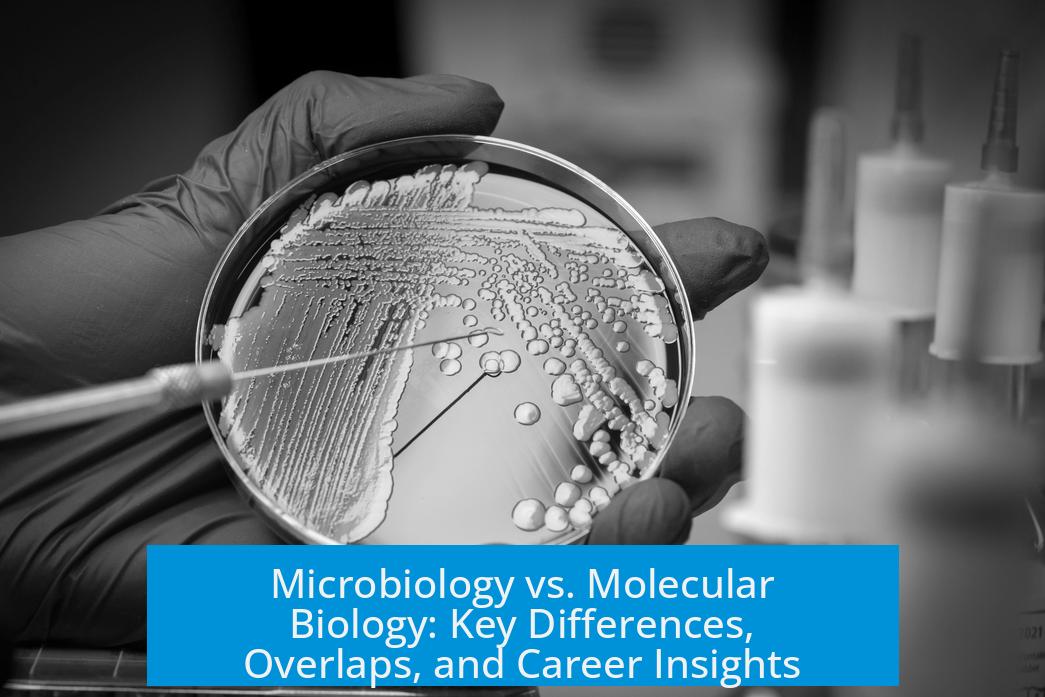Microbiology vs. Molecular Biology: Understanding the Differences and Overlaps

Microbiology and molecular biology share several commonalities but maintain distinct focuses. Microbiology studies microorganisms such as bacteria and viruses, emphasizing organismal and ecological aspects. Molecular biology explores cellular components and processes across all life forms, including humans, using biochemical and genetic approaches.
Scope and Focus
Microbiology
Microbiology centers on prokaryotes and viruses, treating bacteria and viruses as whole organisms. Its approach addresses microbial biology and the diseases microbes cause. Key topics include microbial metabolism, genetics, and ecology.
- Emphasizes wet lab techniques such as microbial and biochemical analysis.
- Focuses on recombinant DNA engineering related to microbes.
- Studies host-pathogen interactions to understand infectious diseases.
Molecular Biology
Molecular biology spans a broader spectrum. It includes both eukaryotic and prokaryotic organisms. This field investigates the molecular parts of cells and their biochemical pathways.
- Concentrates on biochemistry, immunology, genetics, and bioinformatics.
- Employs molecular techniques applicable to bacteria, viruses, fungi, animals, and humans.
- Explores molecular mechanisms behind diseases and drug discovery.
Overlap and Interdisciplinary Fields
There is significant overlap between microbiology and molecular biology. The hybrid discipline called molecular microbiology combines the study of microbes using molecular techniques.
- Fields such as biotechnology, synthetic biology, and bioinformatics bridge both areas.
- Molecular methods are commonly applied to microbial research.
- Curricula often share foundational courses, especially during early education stages.
Choosing either microbiology or molecular biology does not strictly limit a career path. The specific coursework and research experience shape professional opportunities. Many researchers integrate both fields throughout their careers.
Educational Pathways and Decisions
Students often face challenges in choosing between microbiology and molecular biology programs. Many universities provide overlapping courses in the first year, facilitating flexibility.
- Initial college years allow exploration of both interests before specializing.
- Some molecular biology degrees offer specializations in molecular microbiology and virology.
- Switching majors is feasible if early experiences highlight better alignment with one field.
- Undergraduates encouraged to seek research opportunities across related labs to broaden skills.
Career and Job Market Insights
Career prospects vary between the two disciplines but generally require advanced degrees for better opportunities.
| Aspect | Microbiology | Molecular Biology |
|---|---|---|
| Entry-Level Jobs | Technician roles; limited salary with bachelor’s degree. | Technician roles; somewhat broader opportunities in DNA-related fields. |
| Advanced Roles | Requires master’s or PhD for competitive positions in research and industry. | More roles available in genetics, drug discovery, and bioinformatics with advanced degrees. |
| Industry | Biotechnology, pharmaceuticals, public health, microbial ecology. | Pharma, genetic testing, personalized medicine, computational biology. |
Generally, molecular biology opens broader job markets particularly in genomics and pharmaceuticals. Microbiology leads toward clinical microbiology and infectious disease research. Both fields benefit from advanced degrees for better salary and career progression.
Practical Applications and Examples
- Microbiology majors may pursue PhDs focusing on bacteriology or virology, subsequently working in microbial ecology, pathogenesis, or public health.
- Molecular biology graduates engage in studying molecular mechanisms like CRISPR, immunology, and genomic medicine.
- Research often crosses disciplinary boundaries, combining molecular biology techniques with microbial systems.
- Examples include analyzing bacterial gene regulation or developing gene-editing tools in microbes and higher organisms.
Summary of Key Points
- Microbiology studies entire microorganisms and their interactions, focusing on bacteria and viruses.
- Molecular biology dissects cellular and molecular components across diverse organisms.
- There is extensive overlap, particularly in molecular approaches applied to microbes.
- Educational choices should accommodate exploration, as many skills cross both fields.
- Advanced degrees improve job prospects; molecular biology offers broader industry pathways.
- Both fields contribute to biomedical research, biotechnology, and public health advancements.





Leave a Comment